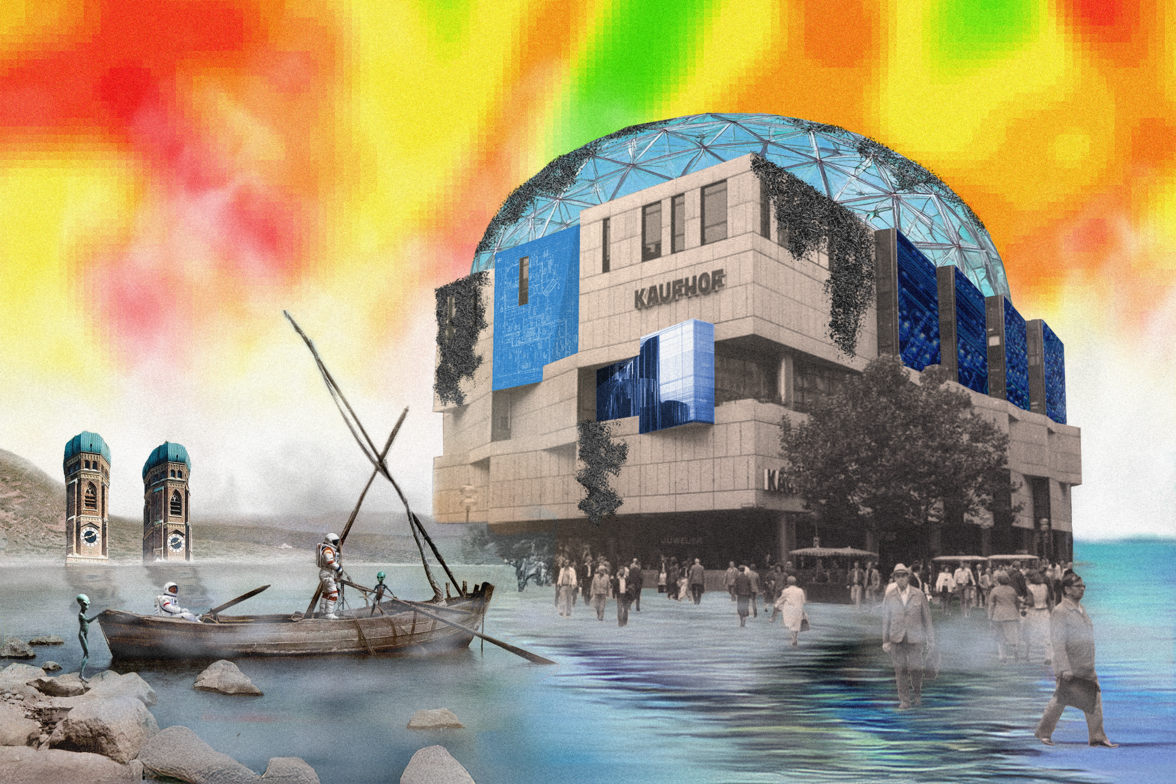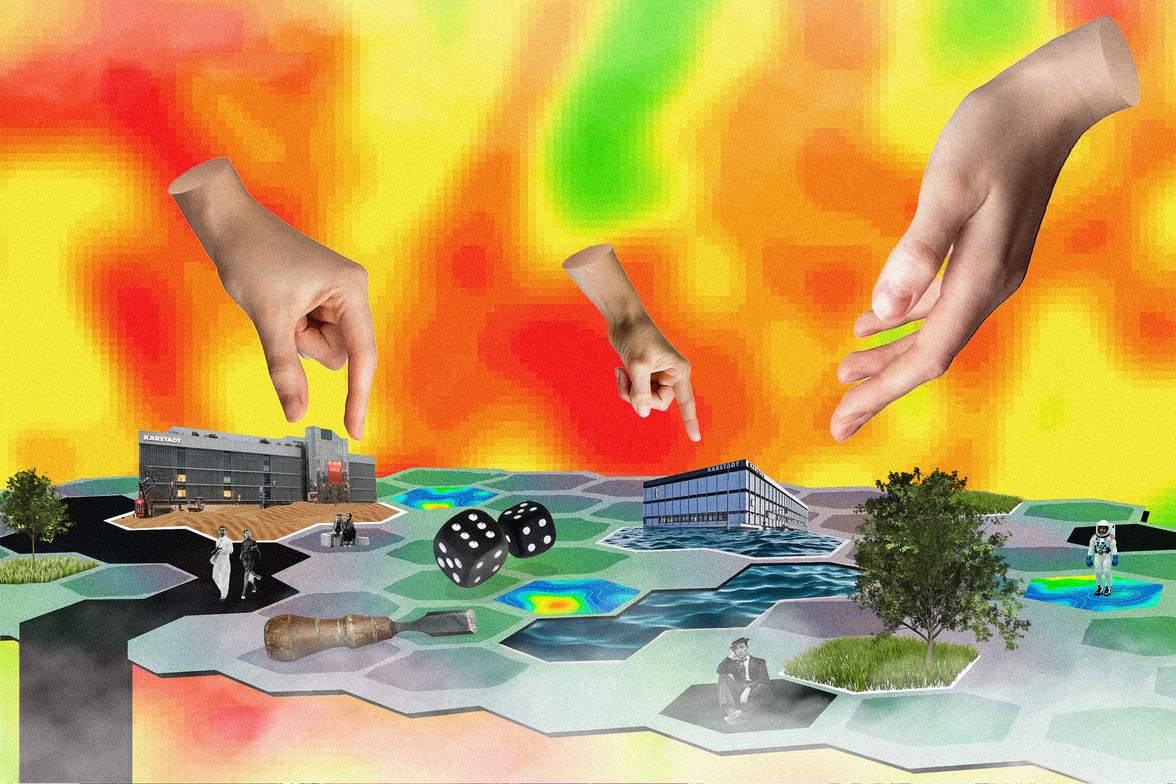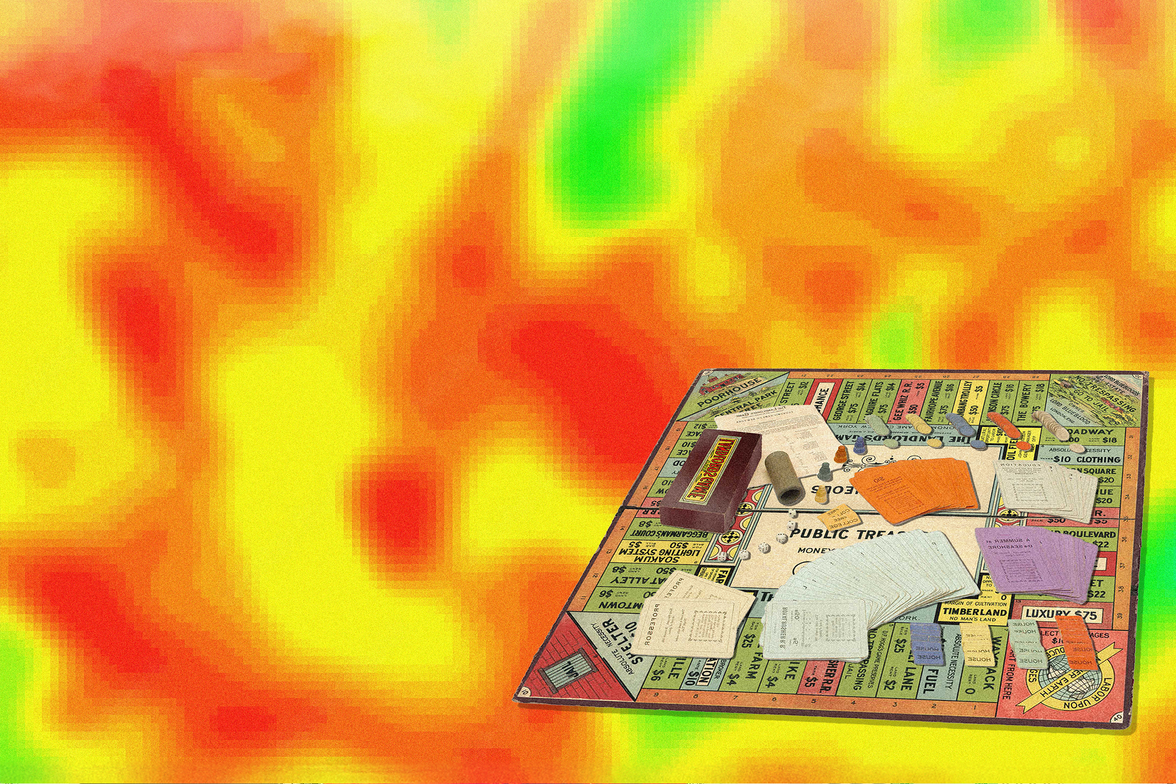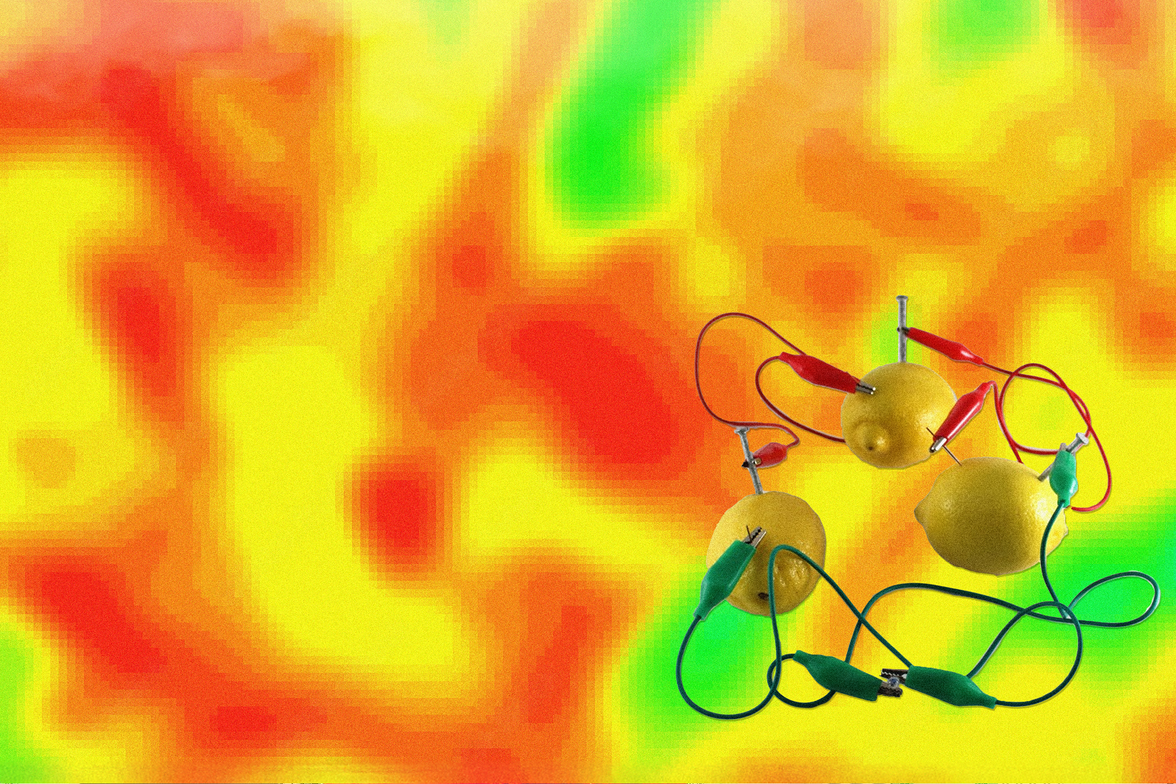Tooling Urban Futures
Project in Winter Semester 2024/25
A requiem for the department store and visions for an inner-city to come.
This studio is a joint venture of the Chair of Architectural Informatics, Prof. Matthias Ottman, and Prof. Elisabeth Merk.
Topic
Vacant department stores, monofunctional pedestrian zones, and overheating streets are symptoms of the poly-crises threatening the centers of diverse German cities. Retail structures, functions, and spatial concepts that have shaped inner cities for decades are facing increasing pressure. This debate crystallizes around the collapse of SIGNA (holder of “Galeria Karstadt Kaufhof” warehouses), which poses central questions regarding the future of diverse department stores and the surrounding urban spaces. We will approach this moment of crisis as an opportunity to rethink pressing questions concerning the inner city: How can we conceive new functional concepts and reshape common urban spaces? How do we reuse the building stock in a socially accessible and climate-neutral way? How do we create livable and accessible public spaces?
Tools
Instead of focusing on single building designs, we will address these questions through (digital) tools. Historically, architectural instruments have been more than a mere means to an end. Visionaries ranging from Yona Friedman and Superstudio to Keller Easterling used digital media to imagine radical planning practices and rethink urban futures. For us, designing tool kits becomes a critical perspective to rethink problems and questions of the inner city. Making games and negotiation kits allows us to explore the qualities of urban space, rearrange actor constellations, and configure planning processes. At the same time developing digital tools links situated planning problems with a general strategic perspective. We consider the making of digital tools as a practical form of Science Fiction.
Phase 1: Research
During the initial phase, we will investigate central planning issues related to the crises of the inner city and their implications for the surrounding urban space. This research builds upon the examination of concrete case studies of department stores in crisis and their urban surrounding. We will work with municipalities and relevant stakeholders to get a situated understanding of these planning issues and contexts. Simultaneously, we will discuss which digital tools and data collections are relevant in this context and investigate their potential impact on planning and participation processes.
Phase 2: Concept
Based on our research, will combine an urban strategy with a concept for a digital tool. Through planning games and brainstorming workshops, we will envision and design participation platforms, negotiation games, and urban simulations. Thus, we will use digital planning tools as an experimental format to articulate strategies and re-imagine planning processes.
Phase 3: Prototyping
We implement the emerging concepts as working prototypes. Programming workshops provide necessary skills in Game Engines, Grasshopper, AI tools, Data Visualization, and Mixed Reality. At the same time, we work on a collective platform, binding these projects together - a collective database of toolkits, urban imaginaries, and visions for future urban spaces.




